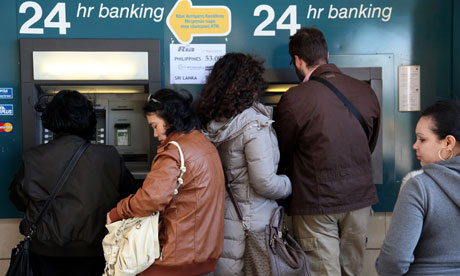To what extent do you agree that a fall in savings is beneficial for the UK economy? Justify your answer.
Savings: In economics, savings refer to the portion of income that is not consumed but set aside for future use. It represents the act of saving money or assets for future needs or investments rather than spending them immediately. Savings can take various forms, including depositing money in a bank account, purchasing financial assets, or investing in physical assets.
Beneficial for the UK economy: Savings play a crucial role in the overall health and stability of an economy, including the UK economy. Here are some reasons why savings are considered beneficial:
Investment and capital formation: Savings provide the necessary funds for investment in the economy. When individuals and businesses save, those savings can be channeled into productive investments, such as building infrastructure, expanding businesses, or conducting research and development. These investments contribute to economic growth, job creation, and technological advancement.
Economic stability: A healthy level of savings helps create a stable economic environment. Savings serve as a buffer during economic downturns or unexpected events, providing individuals and businesses with the financial resources to weather challenging times. It helps mitigate the impact of income fluctuations, reduces reliance on debt, and supports economic resilience.
Financing government expenditure: Governments often rely on savings in the form of tax revenues and borrowing from individuals and institutions to finance public expenditure. Adequate savings can support government initiatives, such as infrastructure development, social welfare programs, and investment in public goods and services.
Capital accumulation: Savings contribute to the accumulation of capital in an economy, which is essential for long-term economic growth. Capital accumulation involves acquiring physical and human capital, such as machinery, equipment, technology, and skills. It enhances productivity, innovation, and the competitiveness of industries, leading to higher living standards and economic prosperity.
To what extent do you agree that a fall in savings is beneficial for the UK economy? The statement that a fall in savings is beneficial for the UK economy is not generally supported. Here's why:
Investment constraints: A decline in savings can limit the availability of funds for investment in the economy. Insufficient savings can lead to reduced investment levels, hampering productivity growth, innovation, and long-term economic development.
Financial vulnerability: A significant decrease in savings can increase financial vulnerability for individuals and businesses. It leaves them with limited financial buffers to cope with unforeseen circumstances, such as job loss, medical emergencies, or economic downturns. This can result in increased household and corporate debt levels, which can pose risks to financial stability.
Retirement and future planning: Declining savings can have adverse effects on retirement planning and long-term financial security. Inadequate savings may result in individuals not having enough funds to support themselves during their retirement years, increasing reliance on government social welfare programs.
Economic imbalances: A fall in savings can contribute to imbalances in the economy, such as excessive consumer borrowing or overreliance on foreign capital inflows. These imbalances can lead to unsustainable levels of debt, asset price bubbles, and macroeconomic instability.
It is worth noting that the optimal level of savings depends on various factors, including the specific circumstances of the economy and the stage of economic development. While excessive saving can lead to underconsumption and hinder economic growth, a sharp decline in savings can have negative consequences as well. Striking a balance between savings, investment, and consumption is crucial for sustainable economic development and financial well-being.








